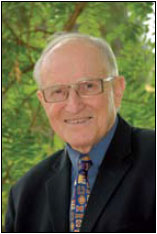Services on Demand
Article
Indicators
Related links
-
 Cited by Google
Cited by Google -
 Similars in Google
Similars in Google
Share
SAMJ: South African Medical Journal
On-line version ISSN 2078-5135
Print version ISSN 0256-9574
SAMJ, S. Afr. med. j. vol.100 n.8 Pretoria Aug. 2010
FROM THE EDITOR
Delusions: what truth to believe?
Beliefs in delusions (false beliefs) are hard to change. South Africa has a tragic history of AIDS denialism, led from the top by then President Thabo Mbeki and his Minister of Health Dr Manto Tshabalala-Msimang. The new leadership at the Department of Health has much damage to undo. The story of the remarkable non-governmental organisation, the Treatment Action Campaign (TAC), has been documented by Nathan Geffen in his book Debunking Delusions.1 It tells of an iconic struggle for social justice and a triumph of citizen activism for social justice and human rights.
Although aspects of this history are known to most of us, this book is a must-read for a fuller understanding of the events and the people in South Africa's HIV/AIDS saga. It was largely as a result of the TAC's efforts that the state-supported AIDS denialism was finally defeated. In the process its leaders, Zackie Achmat and others, became household names. This is a story of courage of small numbers against great odds, and unwavering resolve, despite pressures and threats from their own political affiliations and others, in the struggle against prejudice, delusions, quackery, opportunism and non-science.
The TAC started within the National Association of People with AIDS (NAPWA), but soon split because of many disagreements, a key one being the view of TAC leaders that no money should be taken from pharmaceutical companies. At the start TAC's energies were directed primarily against the pharmaceutical industry. They had remarkable success in getting appropriate treatment at affordable prices for South Africa as a developing country.
Geffen provides useful summaries for the general reader of 'what we know about AIDS' and of 'tradition and science'. The unfolding drama includes TAC's successful court cases to force the Department of Health to supply antiretroviral agents for those in need in our society; the shameful support by Mbeki and his cabinet of Virodene, a toxic solvent peddled as a cure for AIDS (as this was opposed by the Medicines Control Council (MCC) it led to the politically motivated dismissal of the chairman, Peter Folb, and senior administrative staff - the MCC has not properly recovered to this day); Tina van der Maas, whose misguided beliefs about her diets (including the African potato, etc.) were then taken on by Tshabalala-Msimang; and Matthias Rath who, with the support of senior officials, could ply his vitamin quackery on an industrial scale. Informing Mbeki were the AIDS dissidents, including Professor Sam Mhlongo and Anthony Brink in South Africa, and their international co-quacks.
In addition to the quacks and the deluded, organised medicine too has much to answer for, as it is open to manipulation by cynical opportunists and to being swayed by poor science. Dan Ncayiyana2 drew attention to the fact that conflict of interest and self-aggrandisement are pervasive in the business of drug trials. His examples pointed to flaws in the international drug regulatory system. In this issue of SAMJ3 two campaigners (Harris Steinman and Roy Jobson) for transparent and scientifically valid registration of products claiming to have therapeutic benefits, bewail the 'multiple organ failure' of the organs of state that should protect the public in this regard. They document the poor science that prevailed in enabling a company to market a dubious product to a gullible public. There was failure of our health regulatory bodies, but also of the law (and, I am told, the Access to Information Act). Unfortunately the truth can be deliberately or unwittingly subverted.
Since it is in our nature to search for truth, what is the truth? Gardner4 notes that some see truth as self-evident, absolute and universal, whereas for others it is open to changing definition, and that neither view helps us to understand it. He describes the four established domains of truth. The first is rhetorica, where statements are advanced or discredited by persuasion and debate. These are formalised in democratic institutions: legislative bodies (parliament); the courts; and among journalists. Truths for the other domains may be misrepresented to promote arguments. The second domain is mystica, where truths are found in spiritual revelation, prophesy and other mystical processes, e.g. religious beliefs and alternative and traditional medical beliefs (and AIDS denialism). Third is logica, in which statements are tested and validated by methods of reason, e.g. geometry and algebra; and fourth is empirica, by which truth is confirmed by the documented empirical findings of research and discovery. Regardless of the limitations of this domain, newly established facts periodically redefine reality.
Disputes between the domains are inevitable, and the resulting controversies cannot be resolved, even when the domains coexist. Recognising the borders between the domains enables us to accept irreconcilable truths and in which domain we search for the truth. Medicine and the Journal have firm foundations, as rhetorica and beliefs cannot change the facts of logica and good science, but the converse is often true.

J P de V van Niekerk
Managing Editor
1. Geffen N. Debunking Delusions: The Inside Story of the Treatment Action Campaign. Auckland Park: Jacana Media, 2010. [ Links ]
2. Ncayiyana DJ. Misplaced trust? Gaping flaws in drug approval and licensing. S Afr Med J 2010; 100: 399. [ Links ]
3. Steinman HA, Jobson R. Multiple organ failure - death of consumer protection. S Afr Med J 2010; 100: 494-497. [ Links ]
4. Gardner WM. Truth vs. truths. An enduring dilemma for skeptics. Skeptic Magazine 2010; 15: 46-49. [ Links ]














